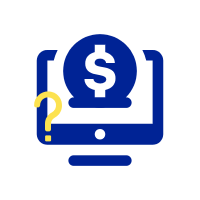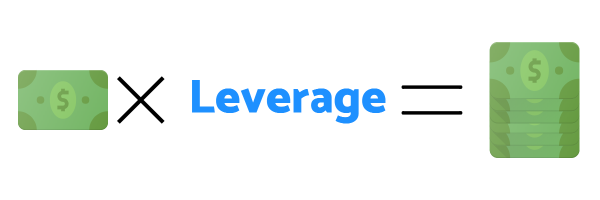Table of Contents
It is very tempting to try starting when you listen to all of the advertisements about Forex trading nowadays. But there is this question that keeps bothering you, a question that no ad, Youtube video or a small conversation with somebody can answer. How to start Forex trading as a beginner in South Africa?
Worry not, we’ve all had the exact same question when starting out. The world of trading can be a very confusing place for a complete beginner. Full of terms you can’t possibly comprehend, as well as strategies and the general feeling of the market.
In order to prepare you for what lies ahead in your Forex trading career. We have made this step by step Forex trading guide to help you better understand, how to start off as a beginner. However, if you are to truly understand what is written here, you need to know what Forex trading is in general. Luckily for you, we’ve already made that article, which you can easily glance through to get a general understanding. Don’t worry, I’ll wait until you return.
 Starting out – For real this time
Starting out – For real this timeSo let’s get started with this guide, shall we?
First thing’s first, we need to find you a reliable Forex broker in to set up an account with. But there is a slight problem in that process. Nobody, besides yourself, can truly determine whether or not a Forex broker is right for you. You will need to review these brokers carefully, maybe try them out in the beginning for a little while and base your opinions on that. Luckily for you again, we have a special team for reviewing all of the South African regulated brokers, so you can check them out there. They will act as especially useful guides for beginner Forex traders trying to figure out how Forex brokers should be looked at. But if you want a more general guide to how Forex broker ratings work, keep reading this article.
No matter how well regarded a broker is, no matter how much money they’ve spent on marketing and no matter how many people recommend it, you must always, ALWAYS check if they are regulated by at least one entity.
The way the regulation works is that a local government branch gives out a license to these Financial Service Providers, aka brokers. In order to receive the license the brokers need to adhere to a lot of laws, for example, having a business model that ensures there will be no money laundering, a comprehensive KYC (Know Your Customer) documentation. For South Africa, we have the FSCA ( Financial Sector Conduct Authority) as our regulator, which used to be called the FSB, so don’t get confused if a broker says they have an FSB license, it’s the same as an FSCA license. But having a license isn’t the only thing that determines the trustworthiness of a broker, although it plays a large role. After finding out that the broker is indeed regulated, a Forex trading beginner must always make a review of the brokerage, look at their website, how well they disclose information, what are people saying about them and what their business model is like. In most cases, the website is what gives away the scam.
Check out our top Forex Brokers reviews:
After choosing the broker you will have a couple of options. In most cases, brokers offer different types of accounts on their platforms. Generally, there are about 4 types.
 Forex trading for beginners – A Demo Account
Forex trading for beginners – A Demo AccountA demo account, as I’ve said above, is a godsend for every beginner. It is the best Forex trading guide for the market, how it shifts and how it reacts to different events, while not exposing yourself to too much risk.
The way this works is that you are given a virtual account. This means that you don’t need to deposit anything, all of your trades will be virtual, with virtual money. Demo accounts usually resemble VIP accounts because of the amount of the virtual money you are given. Naturally, you can’t withdraw any of that money, as it isn’t real. But using this account helps to become more familiar with the market, the tools at your disposal and most importantly the intricacies of trading itself. How to start Forex trading? It all pretty much always starts with a demo account, but be careful when you switch over to a Live Account. The psychology that follows real-life trading isn’t present in the Demo account experience. If you trade on the demo too much, you may become too comfortable and make bad trades after switching to a live one. About 2 weeks on the demo account should be enough for you to get the hang of Forex trading, however.
Ok, so now you’ve finally finished the 2 weeks of tutorials on the demo account and you really want to start trading with real money. However, you are still a beginner and therefore don’t want to deposit too much or nothing at all. What can you do to actually start trading without a deposit? Well, there is 1 option that could be quite interesting for you.
 Remember when I mentioned that the VIP traders sometimes get better deposit bonuses? Well, there is another type of bonus. It’s called the no deposit bonus. This means that when you register for an account with a specific broker if they have the no deposit bonus feature, you will get a small sum of money to start trading for free. In this Forex trading tutorial, it was essential that I mention this, although it is quite a risky venture for a complete beginner.
Remember when I mentioned that the VIP traders sometimes get better deposit bonuses? Well, there is another type of bonus. It’s called the no deposit bonus. This means that when you register for an account with a specific broker if they have the no deposit bonus feature, you will get a small sum of money to start trading for free. In this Forex trading tutorial, it was essential that I mention this, although it is quite a risky venture for a complete beginner.
Pros – You don’t get to deposit your own money, meaning that there is no real risk to it. You get to start off trading and if you are successful after a specific threshold of trades is met, you will become eligible to withdraw your profits. It’s completely free and easy to acquire, which might seem like the perfect opportunity for trading Forex as a beginner.
Cons – Your trading is very limited as in most cases the bonuses are quite small. You cannot withdraw any of your profits even if you make them, you need to reach a specific threshold of trades before you become eligible. In most cases, brokers have two thresholds. 1 is for when you can withdraw the bonus, and 1 for when you can withdraw your profits. The risk is that you won’t feel the real loss of money if you enter a bad trade, tampering with your learning experience.
The way you acquire a no deposit bonus is that you register for an account with a broker. The broker should immediately offer you the bonus, which you can accept just with a simple click. Within a few minutes or sometimes hours, the funds will be transferred to your account and you will be able to trade. Might be a good opportunity for a beginner to start trading Forex live.
Alright, you don’t care about the no deposit bonus, you have ZAR 1,000 and you want to start right now and make a lot of money with trading, what should you do? Well, the rules of teaching Forex trading to beginners dictate that I don’t tell you this information as it is quite risky. But I trust your better judgment.
There is a feature with Forex brokers which is called Leverage. Now, this feature helps traders to increase the amount they are trading with, even if they don’t have sufficient amounts. For example, if you enter a trade with ZAR 1,000 and the leverage is 1:100, then you’re realistically trading with ZAR 100,000, potentially maximizing your profits. But there are also quite a lot of downsides to this as well. Let me tell you a story to better illustrate it some of the complicated concepts of how to trade Forex for beginners.
Picture Mark. Mark is a student in one of the schools in his local city. Every time he goes to school, he buys an apple on his way there, for ZAR 10. When he gets to the school, he doesn’t eat that apple, he sells it to one of his classmates for ZAR 20. He does this for a couple of weeks and is able to make a little bit of money out of it. Soon enough his father finds out about this and makes him an offer. His daily allowance is ZAR 10, his father offers to give him an additional ZAR 100 each morning to buy 10 more apples for him to sell. However, Mark needs to give him back ZAR 105 at the end of each day. This is quite appealing as it would be hard for Mark to use his own ZAR 100, so he accepts. Every day he is able to now buy 11 apples instead of 1 and sells them all. At the end of the day, he is able to pay his father ZAR 105 and keep the ZAR 115 to himself. This is basically what leverage is. Mark’s father gave him leverage of 1:10. Meaning that he would multiply Mark’s daily investment by 10, from ZAR 10 to ZAR 100. It seems quite nice in the beginning, but there is also risk connected to this. Let’s tell the continuation of the story to illustrate it.

One day both Mark and his father forget that it is a holiday, therefore there is no school. However, the deal is made as per usual. Mark gets his ZAR 100, buys the 11 apples and goes to school to sell them. But, nobody is there to buy them and mark needs to sell them somehow in order to pay his father back. He could hold onto them until school begins tomorrow and explain it to his father, but by then the apples will rot and nobody will want them anymore (I know apples don’t rot that quick). So now Mark is left with 11 apples with no way to sell them, maybe if he could just reason with his father. After coming home and telling his dad about the situation it turns out that the father doesn’t really care. He wants his ZAR 105 back no matter what (a terrible father I know). Because of this Mark is now in debt, and it is highly unlikely that his father will give him that ZAR 100 ever again, so he needs to rely on his own resources, heavily ruining his profits. So you see now the risks connected to leverage. If you make a bad trade while using leverage, you won’t make a profit. If you don’t make a profit, you can’t pay the broker back, if you can’t pay the broker back you are now in debt and need to use your own money to get out of it.
Even though leverage is a great way to maximize your profits, I’d still suggest to a completely new Forex trader to avoid it in the beginning.
There is no doubt in my mind that since you are reading this article you have already decided that you want to start trading Forex. But there is one question that is undoubtedly bothering you. “How do I turn Forex trading into a living?” Well, there are a lot of ways you can maximize your chances of making a good trade, but there are no 100% guarantees. If there was such a thing that would make your trades 100% successful, then we wouldn’t be sitting on the internet reading articles about Forex now, would we?
Hence it should tell you that, whenever a broker says that their traders benefit from a 100% success rate, is a complete lie and you should avoid that company. But there are ways to maximize your chances as I said earlier. Let’s look into some of them and discuss how you could use them. Turn it into a Forex trading tutorial of sorts.
 Keep an eye on the news
Keep an eye on the newsOne of the most important parts of the Forex market is that it reacts to outside factors. One of the main factors it reacts to is the news that comes out every day. For example is there is a major political dispute in one country, you can make sure the currency will drop as traders become a lot more skeptical about the whole ordeal. The most recent drop that can be observed even now is, with the Ukrainian currency, when it dropped as soon as the hostilities with Russia began. Forex is a financial asset, it consists of currencies, currencies that are dependent on their governments to remain relevant. If the government is incompetent, then the economy goes to ruin and the currency follows suit. Take a look at Venezuela for example, their currency is being torn to shreds and the government is doing hardly anything about it. Although it is better to let the market handle the prices, it is still common for governments to intervene should the situation become too bad.
So one of the best and easiest things you can do to profit from Forex trades is to be well versed in the latest news. The Forex market is rather large, so the news may not reach some of the traders, that’s why you need to always be vigilant to make sure you don’t fall victim to the unknown. Some beginners on the Forex market forget that it is important to keep track of the news, but I hope you don’t make that mistake.
A strategy is something every Forex trader has. It’s a way they conduct trades. Some of them go for day-trading and try to make money from the short-term investments, and the rest go for long-term investments. There are countless variations of strategies and its impossible to single out just one as the best.
 In most cases, these strategies share the same factors. One of the primary factors is the analysis of the charts. No matter how you look at Forex, you will have to analyze some charts and make a good guess through that. One of the most common ways beginners do analysis is by looking at the currency pair’s recent history and try to make a guess if a trend is going to repeat itself.
In most cases, these strategies share the same factors. One of the primary factors is the analysis of the charts. No matter how you look at Forex, you will have to analyze some charts and make a good guess through that. One of the most common ways beginners do analysis is by looking at the currency pair’s recent history and try to make a guess if a trend is going to repeat itself.
Another strategy is to not have a strategy at all. Crazy right? There’s this feature that some brokers offer to beginner Forex traders. You can utilize software that will do the trading for you. All you will have to do is indicate the stop-loss and take-profit thresholds.
A stop-loss is when your trading position closes, once a currency pair price reaches a certain amount. For example, you are trading ZAR/USD. Let’s assume that the exchange rate for these two currencies is 1/1, meaning that ZAR 1 = USD 1. When you enter a trade you can put a stop-loss which dictates that if the exchange rate drops to the point where ZAR 1 = USD 0.9 your position will be closed and you will be spared of any further losses.
A take-profit is pretty much the opposite. Let’s assume the same situation. A take-profit order will make sure that if the exchange rate reaches a point where ZAR 1 = USD 1.2 you will close the position and take your profits. This is usually done when you think that after a small rise, a big fall will follow.
Now you know pretty much all of the basics of Forex trading. You should have a pretty clear checklist of things you need to do in order to start Forex trading from home. Oh, didn’t I mention that? Yes, you can trade Forex from home, there is no need to go anywhere. You’ll have to use the broker’s supported software. Which is usually MetaTrader 4 or 5 in South Africa. Let’s go through the checklist.
I think it’s quite simple and comprehensive. This is, however, the very basics of Forex trading. I would explain all of the detailed parts, but they are far from your reach just now. Start off with these and within a month or two, you’ll have a really good understanding of how the market works and how to make successful trades. Good luck!
